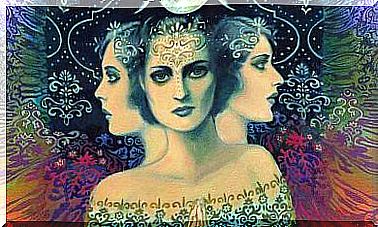“Conscious Love ” And Emotional Maturity
Throughout our lives , we have sold the idea of ”romantic love”. We’ve read about it in dozens of books, seen it in thousands of movies, hundreds of TV series, and even seen it in commercials and commercials.
So can you say that “romantic love” is a kind of scam? Maybe not entirely… but we can more precisely define it as a type of “meaningless love” because it is, in a way, not much more than an idealized image of emotional relationships. This is where we establish a very intense affection and a mutual dependence that almost never ends well.
It is not healthy to romanticize the idea of true love or the “perfect person”. Having an unreal picture of this in our minds can, after all, get in the way and prevent us from meeting the “best” person because we are instead looking for the “perfect” person, who is nothing more than a fantasy. It is a good idea to keep in mind that true love does not come from anyone else, but rather from within us.
This means that relationships should be built in a “conscious” way; with purpose, dedication and emotional maturity.
“Conscious love” is not afraid to be alone
If you have never heard of the concept of “conscious love”, it is definitely worth exploring.
In conscious love, one does not see one’s partner as a “soulmate” that one needs to become whole because both parties in the relationship are already whole. They are already complete people who are not afraid to be alone. They offer free well-being and emotional maturity to the relationship and share these with each other.
People who are in “unconscious” relationships are usually immature. They are looking for someone who can fulfill their emotional needs and to find a balance to establish a type of toxic affection. For these people, manipulation and subtle, emotional blackmail are often the answer when it comes to establishing relationships because they are afraid of being themselves. They are not aware of how to properly respond to their emotional immaturity.
Those who, on the contrary, see themselves as complete individuals, and are also lucky enough to find partners who are equally emotionally mature, experience conscious love where everything flows naturally. There are no requirements or gaps to fill, just mutual self-confidence and an understanding that allows them to build healthy relationships. Not perfect, but authentic.
How to build a conscious relationship
Is it possible to create emotional bonds that actually work? Obvious! Establishing a relationship based on conscious love must begin with getting rid of the need to “fill an emotional void.”
It’s all about being patient when you start the journey towards becoming a complete being. Enjoy yourself and your experiences; Every day you learn something new while enriching yourself by developing emotional maturity. Conscious love will certainly come when you are already whole, but do not force yourself to find the “perfect” person.
For a better understanding, try following these tips:
- The best thing you can do for yourself is NOT to look for the perfect person. Start with yourself and create the best “you” you can be; become the version of yourself you truly love.
- Build your emotional maturity, strengthen your self-confidence, defend your values.
- It is important that you learn to enjoy being alone; Learning to be alone is not dangerous or harmful. Do not force anyone else to be with you because you are afraid of being single.
- Never lose the excitement of starting a new relationship. Do not be afraid to make the same mistake you made before; you have learned so much and know exactly what you need.
- We understand that everyone has an idea of who their “perfect” partner is. It is something we all have and cannot avoid. However, if you have a very clear picture of what you are looking for, you should be the type of person you would like to have by your side; then the right person will be reflected within you.
- Finally, always remember: You deserve to be loved. Never tell yourself anything else.
Photos by Benjamin Lacombe.









